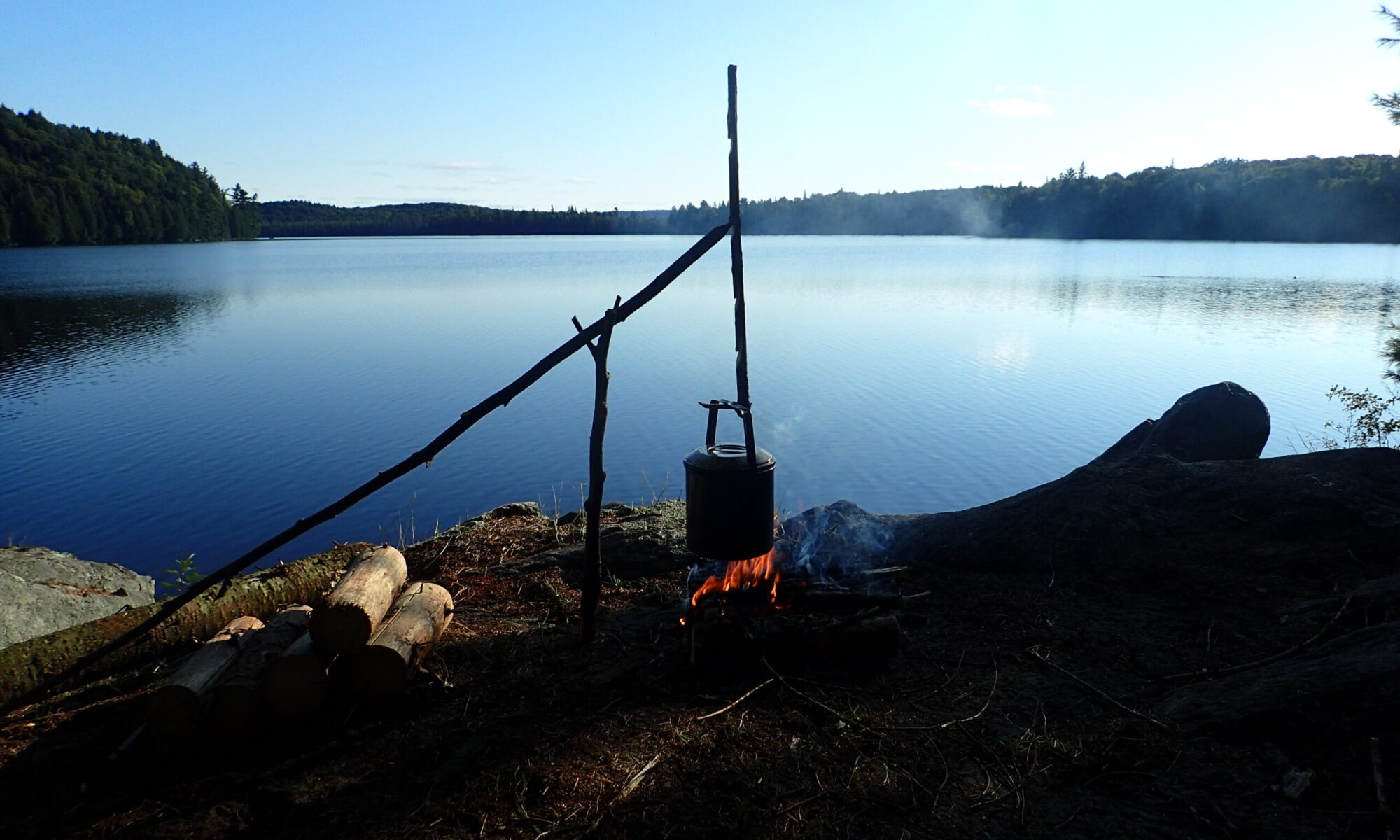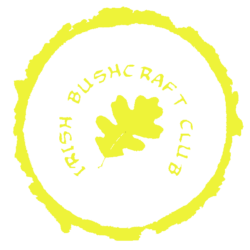I decided to go back and do another bushcraft course. Something I hadn’t done one for a long time, mostly working on my own skills with the club. I signed up for Paul Kirtleys Intermediate course as it mentioned that there was a challenging element to it. I didn’t give course selection too much consideration but one or two people I know, knew about the course and mentioned that it was quite tough. Someone even rang me giving me advice on the course, which I found surprising. I just wanted 6 days in the woods for a break and learn some new skills. I didn’t pay too much attention to the advertised course content. I did however want to improve my hand drill technique and material selection. So that was probably my only goal going over
The course is run in Sussex. I got a flight to Gatwick and public transport to Withyham which is beside the course area. I arrived a day early because of how the timings worked out with flights and was allowed to stay on the course site a day early. Excellent! An extra day in the woods. Having the extra day also allowed me to start foraging for material as I had been fore-warned. I helped Paul and Henry set up the course equipment for students arriving the next day.
Paul has many repeat customers. There were 7 people on the course in total and we were split into 2 groups of 3 and 4. I was grouped with Liam and Danny. Liam was a small skinny lad from south London and Danny a more robust looking Yorkshire man. I instantly got on with them and they were a good crew.
On day 1 after being divided into our groups we were brought into a small cottage that had 2 tables for both teams. “That’s your food, so split it between the group”. I wasn’t expecting that but I recognised the pattern straight away. There was an army playbook about it. We had no idea what we were doing, no mention of resupply or where we were going. Paul and Henry remained button lipped about the process. The rations would probably have lasted the group about 2 days if stretched. Once packed away it was time for a walk to a forest about 3km away.
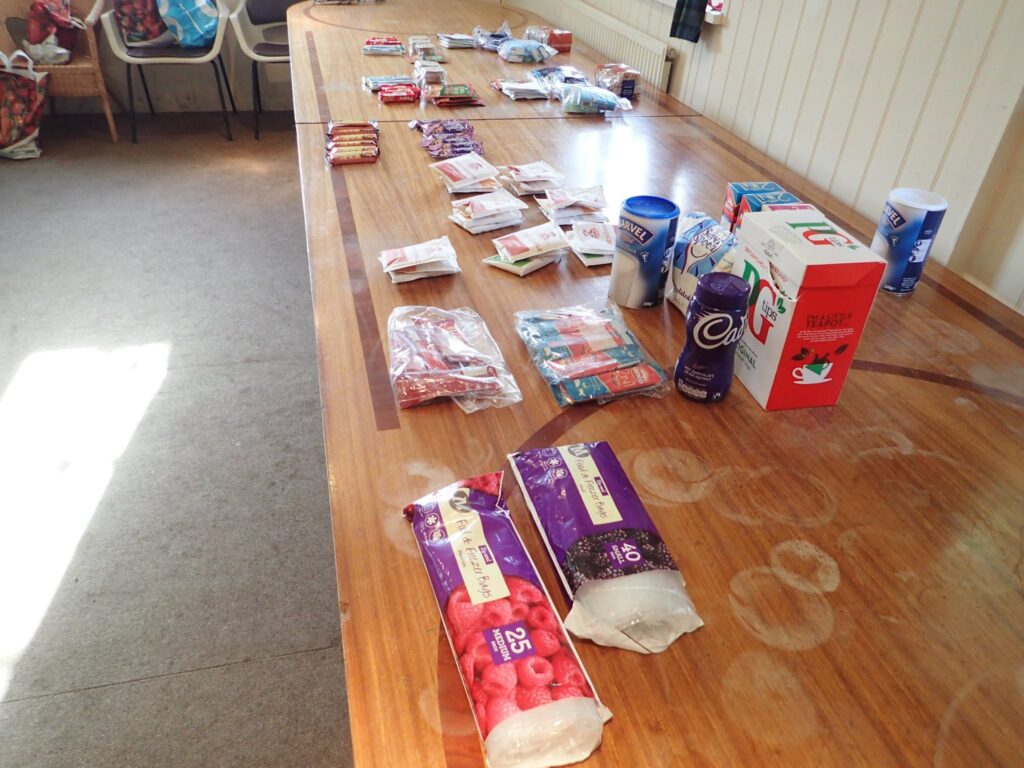
I got chatting to Danny who was actually the editor of an online magazine called the Bushcraft Journal. I didn’t read printed bushcraft magazines at the time so I was intrigued to hear about it. Danny had a great work ethic and lugged a set of cameras with him too. He was writing an article about the course for the journal. That evening Paul sat us down and asked each individually what they hoped to get from the course. Each person giving a considered answer and a shopping list of skills, my response was simply “The craic”. I didn’t go on the course with a list of achievements or tickboxes. I wasn’t really aware of the format of the course and didn’t really mind. I just wanted a bushcraft holiday. I didn’t realise that the food we got was to last us part of the week and foraging would now be a part of the primary diet intake. We would be fed on a challenge basis with rewards. For every success we would get some extra food but people would start feeling hungry quickly and stay that way for the week.
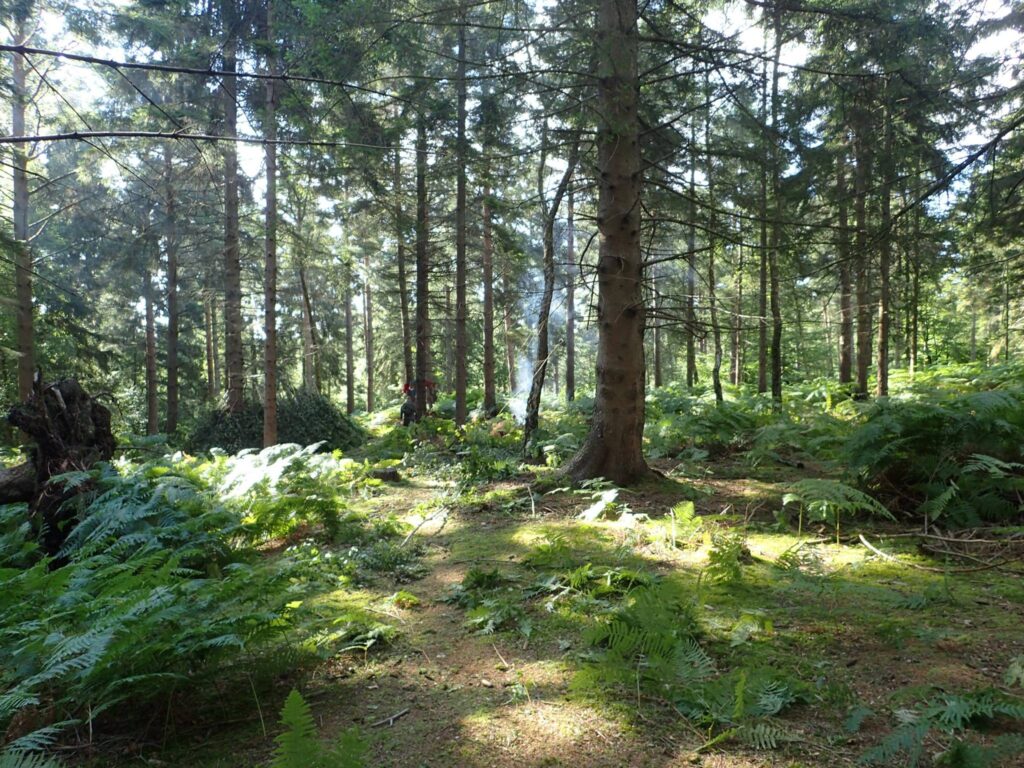
The next morning we packed up and headed to the primary course location about another kilometer away. Henry led us to our location as a group. “Ok, build a shelter here, you’ll be in it for the next 6 days”. It was go time and I loved shelter building. The 3 of us cracked into it. We discussed the construction and in fairness to Danny and Liam, they allowed me take lead on the design. Danny picked the location. Building was a group effort and I was determined to bury myself into the work and be seen as a good contributor to the team effort. The difference in physicality began to show after about 6 hours of building. Liam being a bit smaller and skinny hit a bit of a sugar crash and slight dehydration but was determined to continue at a high pace. Did I mention we had only the water we brought? Danny was a trojan worker and we sparred off each other nicely. If I brought a big tree, Danny would bring 2. Then I’d have to go and get 3 and it went on like this for hours. It meant our shelter was coming along nicely until we got pulled to help the other team.
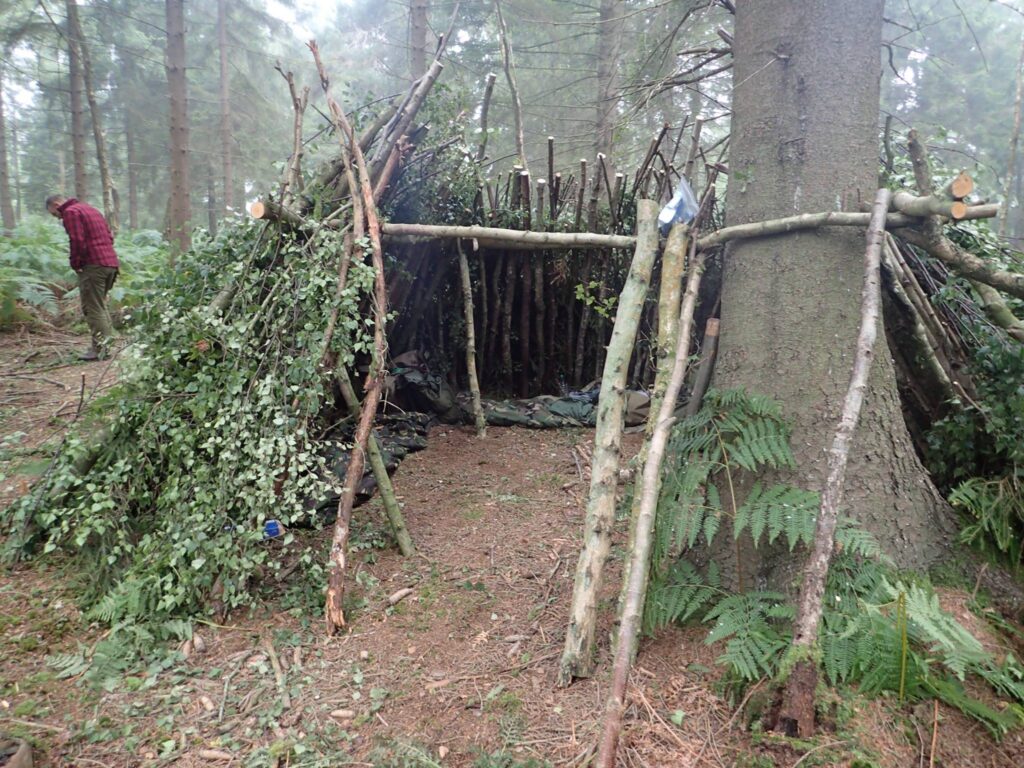
The other team was struggling to knit together. They had 2 grafters in the group and 2 passengers. I could sense the annoyance already on the first day within their group and it would only grow throughout the week. After we helped them finish their shelter, they piled into our camp area and helped cover our shelter as it was getting dark. The 2 groups had barely eaten and burned through a good chunk of the rations working constantly for 10 – 12 hours getting the shelters up. Paul and Henry asked us to light fire from first principles, so the lads were happy enough to let me do the bow drill. I had gathered materials when I had arrived, so I had a massive head start on the other group who ended up not lighting it the first night at all and slept without fire which impacted their hydration levels as they couldn’t purify water. During the day we had also stopped for some foraging, a hand drill demo and made some digging sticks. The shelter was not completed so we told to use you sleeping bag that evening and finish it in the morning. People were properly knackered and it was only day 1 complete. Although it wasn’t what I was expecting, I was enjoying it thoroughly.
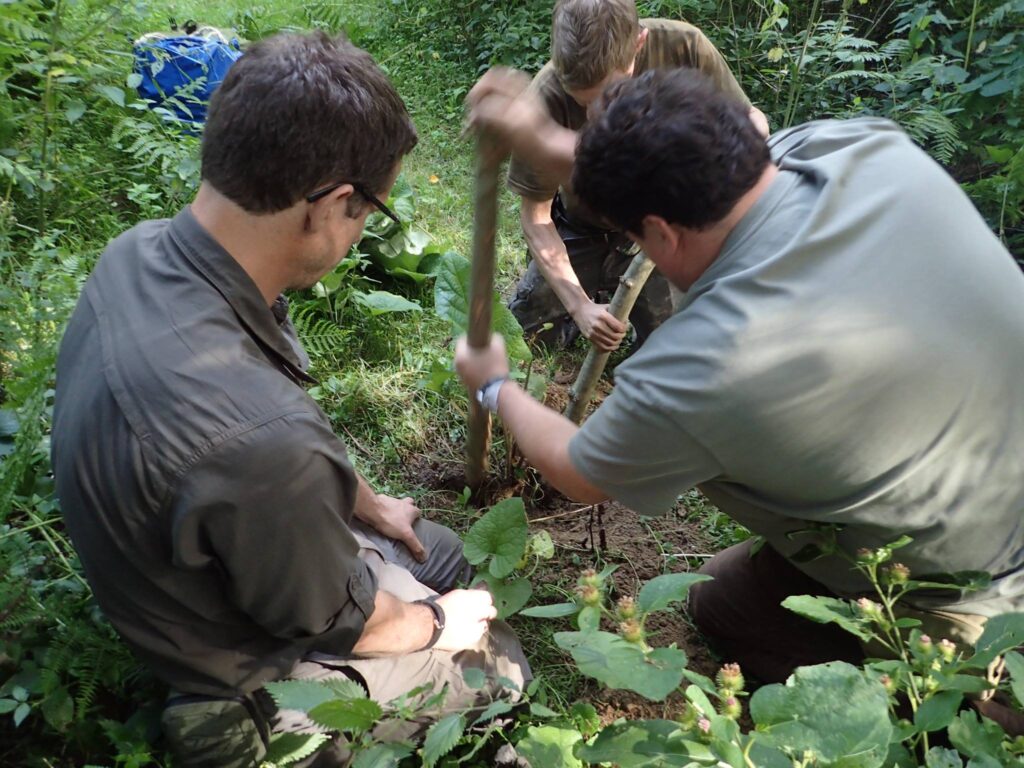
The next day we cracked into the hand drill. Have to say this is where Danny stood tall. We practiced as a group, myself and Danny pairing up. Danny was just able to deliver more power on the hearth board than I was, I learned as much from watching him as I did the instructors. My technique was poor by comparison but I gave it everything anyway, quickly destroying my hands. We also had to finish our shelter which was coming along nicely. From my experience, a small shelter is best, close to the fire with high angled walls for water shedding and heat retention back into the shelter itself. The other groups shelter was wider and had low angled walls meaning more space and more area to heat. They were also quite far from the fire. Our shelter was small, close to the fire and we would often sit in our boxers drying our gear throughout the week because it got that warm in there, even when raining. Needless to say the ribbing in the evening was fierce.
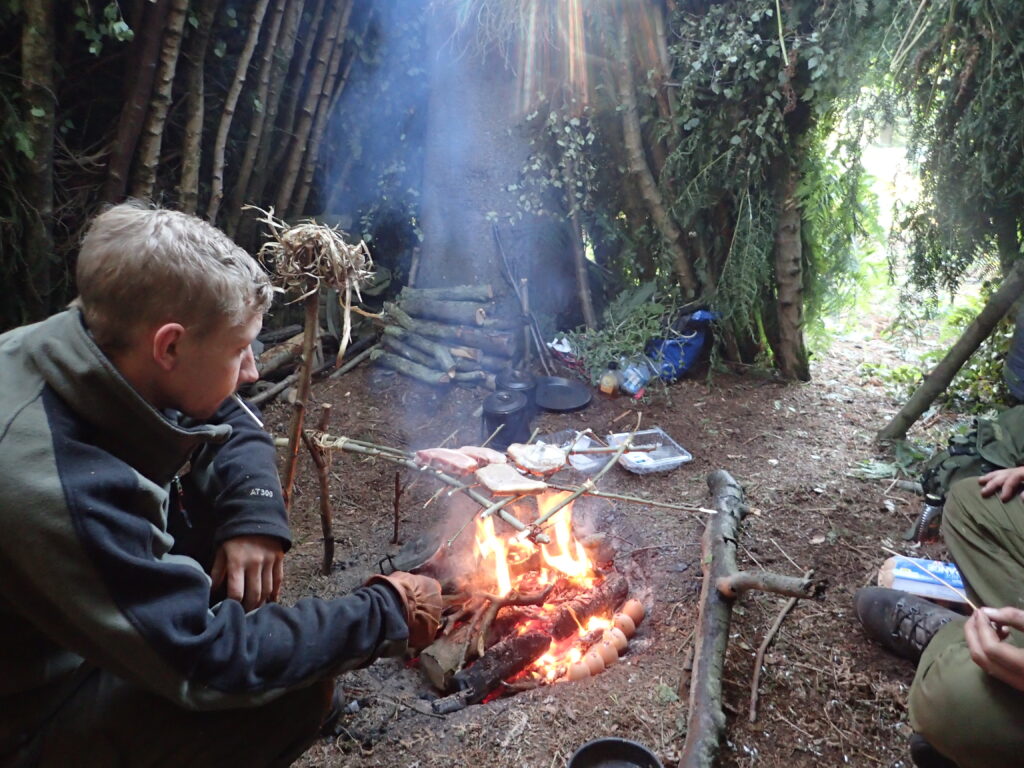
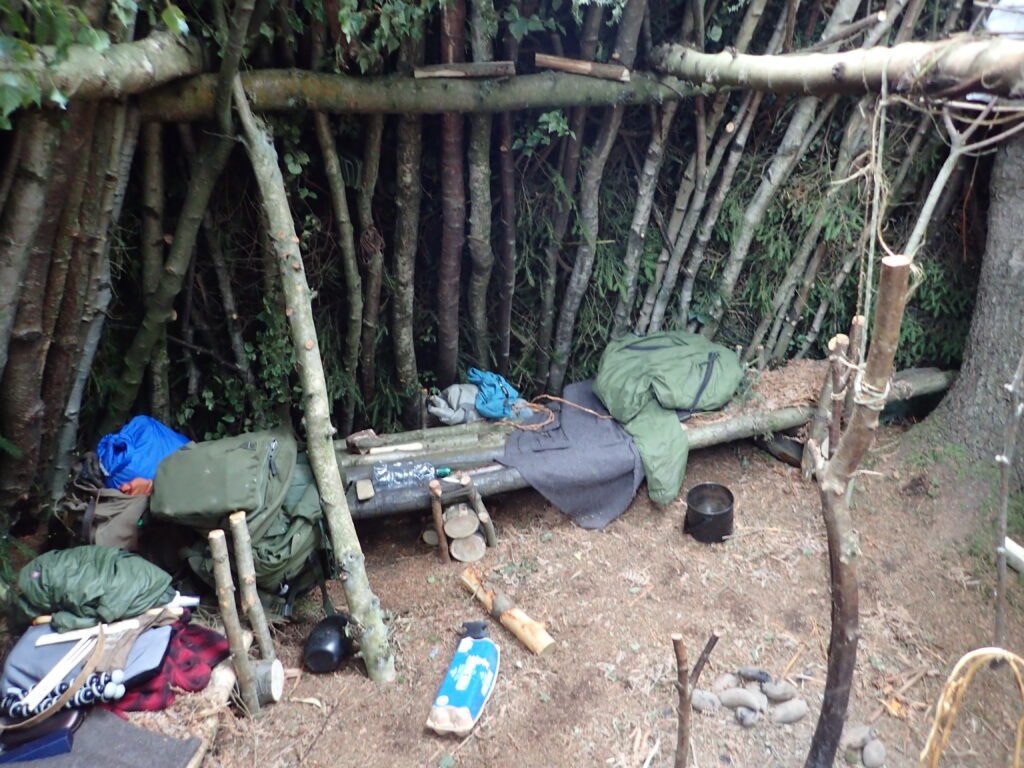
The 2 groups had very different experiences on the course as is the nature when you put people together who don’t know each other. Our group, despite being smaller with the same required workload got on pretty well. The other group began to unravel a bit. Members that were working bore the brunt of the load. I did however have a bit of a go at Liam at one stage. Liam was a smaller lad and certain tasks he wasn’t up for. I ended up having a go at him around day 4 because he was complaining about something but I was out of order, I just have a low tolerance for complaining. This wasn’t fair really and I should have kept it in. To his credit, we just got on with it for the rest of the week and it was the only notable blip in an otherwise strong group. The other group had a nightmare, even to the point that one member asked could he switch groups. Their shelter partially collapsed one night after rain, leaving 2 sides unprotected. It could have been worse as no one was injured given that it fell near someones sleeping area. 2 members of their group ended up using their modern kit for the rest of the course and we could tell they weren’t on speaking terms near the end of the course. All this happening just 100 metres from us who were laughing in the evening despite being fatigued with hunger. Just goes to show what can make or break someones experience of a course. If you can’t laugh off a bit of hardship as a group, you’re in trouble. The first thing in your bag should always be your sense of humour.
The rest of the course consisted of lots of skills elements while you were still foraging and working to keep your camp going. One of the more entertaining parts was foraging Cattail from a pond. Cattail rhizomes are rich in starch and can be collected easily without damaging an area too much as they can grow quite aggressively. We also were digging for Burdock root and collecting materials for crafting. We made broilers, baskets, making traps and nets all the time being drip fed food to keep our energy just about acceptable. The idea being you feel how a native person would have felt. Constantly hungry but always working towards your next meal.
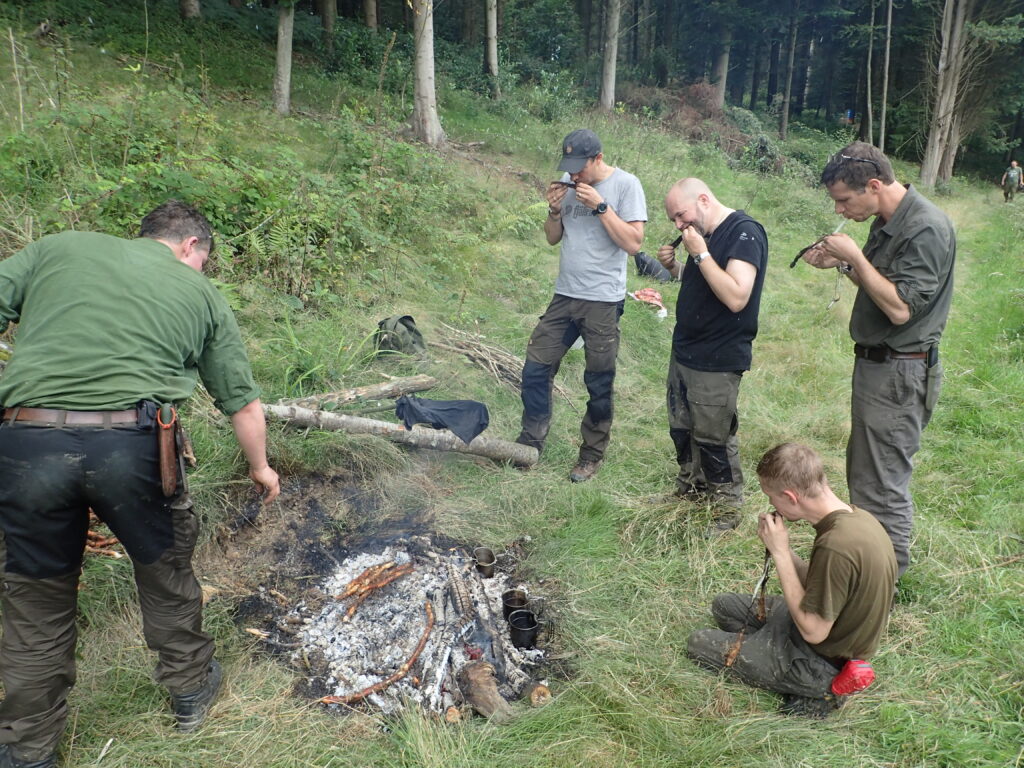
The first day I began to feel tired was probably Thursday. We were on the go the whole time, which was good but I could feel the energy levels starting to drop. One or two of the lads started to have dehydration issues, so I wanted to help out and fill the gap as I felt really good but started to feel a bit of fatigue as the week wore on. The first big feed was on Friday when we were given a leg of lamb to cook which took until about 2am as it arrived late. You never know where or when your next meal is coming.
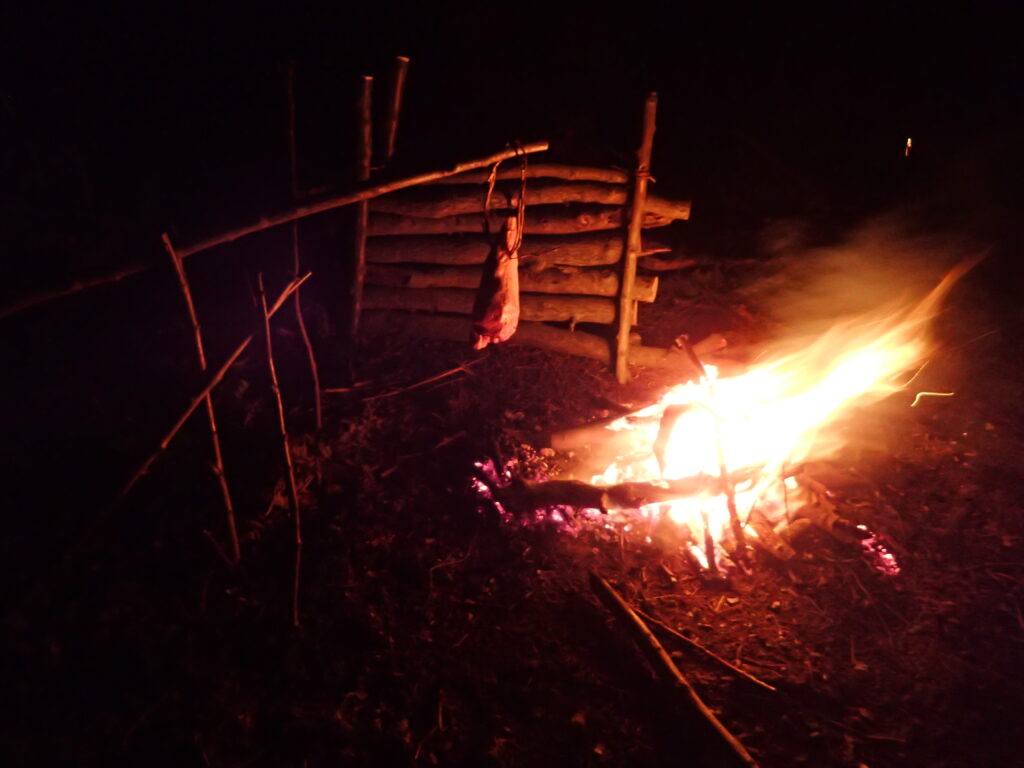
Saturday was apparently “Test day”, which I only heard about on Friday. We had to go out as a group of natives, forage all our food for the breakfast and lunch, then light a fire by hand drill. Again Danny pushed this one over the line for the group as we barely managed on low energy reserves. With a final meal that day the course was over and we headed back to break camp.
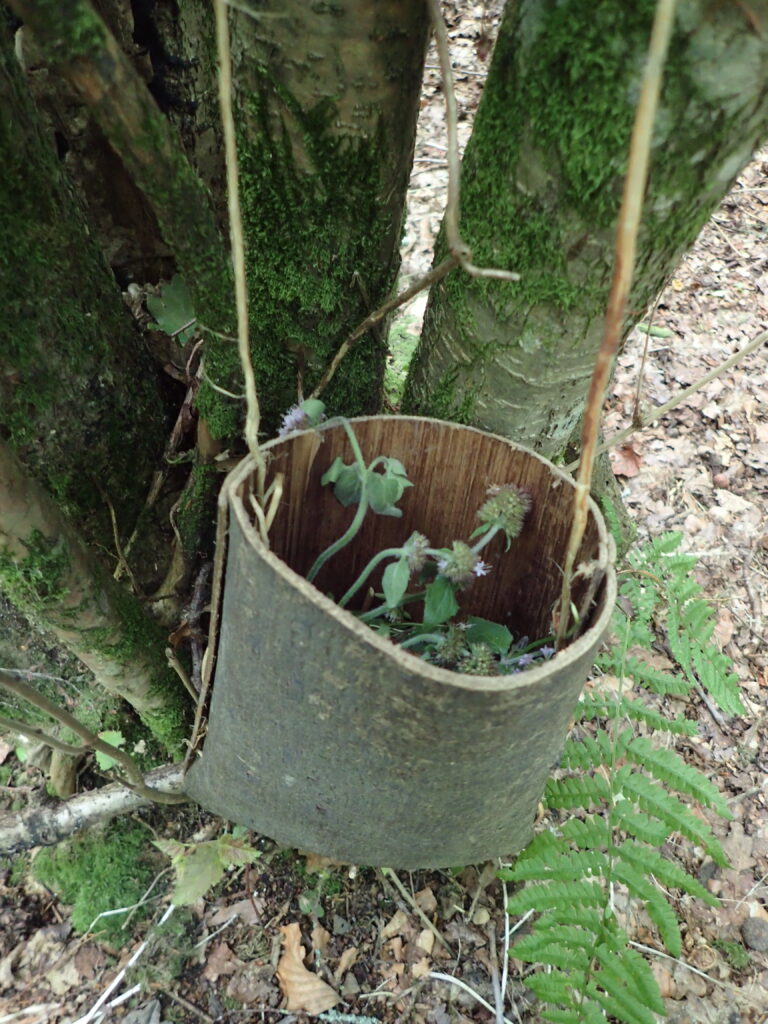
The course was pretty good. I enjoyed the instruction, particularly Henrys method of explaining things. Paul had been ill throughout the course and took more of a back seat but still was generous with his knowledge. Some elements of the course I didn’t like but all in all it went well. My next venture will probably take me to another bushcraft school such as Wild Human in Cumbria or Pat McGlinchy in Scotland. Still lots to learn and enjoying every minute of it. When I returned from the week I had dropped 2.5kg in weight, my wife got a bit of a shock when I came in the door asking if I had crawled back from England. All in good fun and it’s important to put 100% into these experiences.
